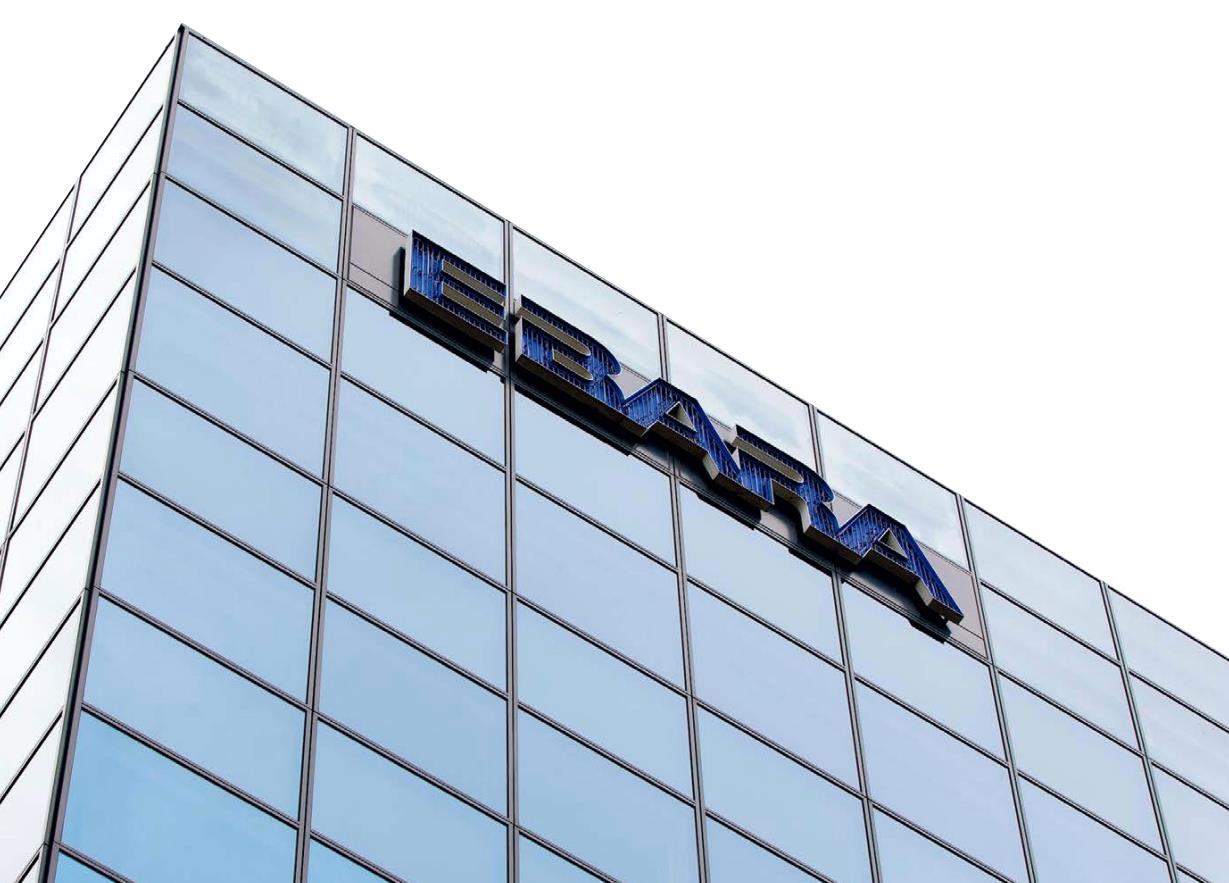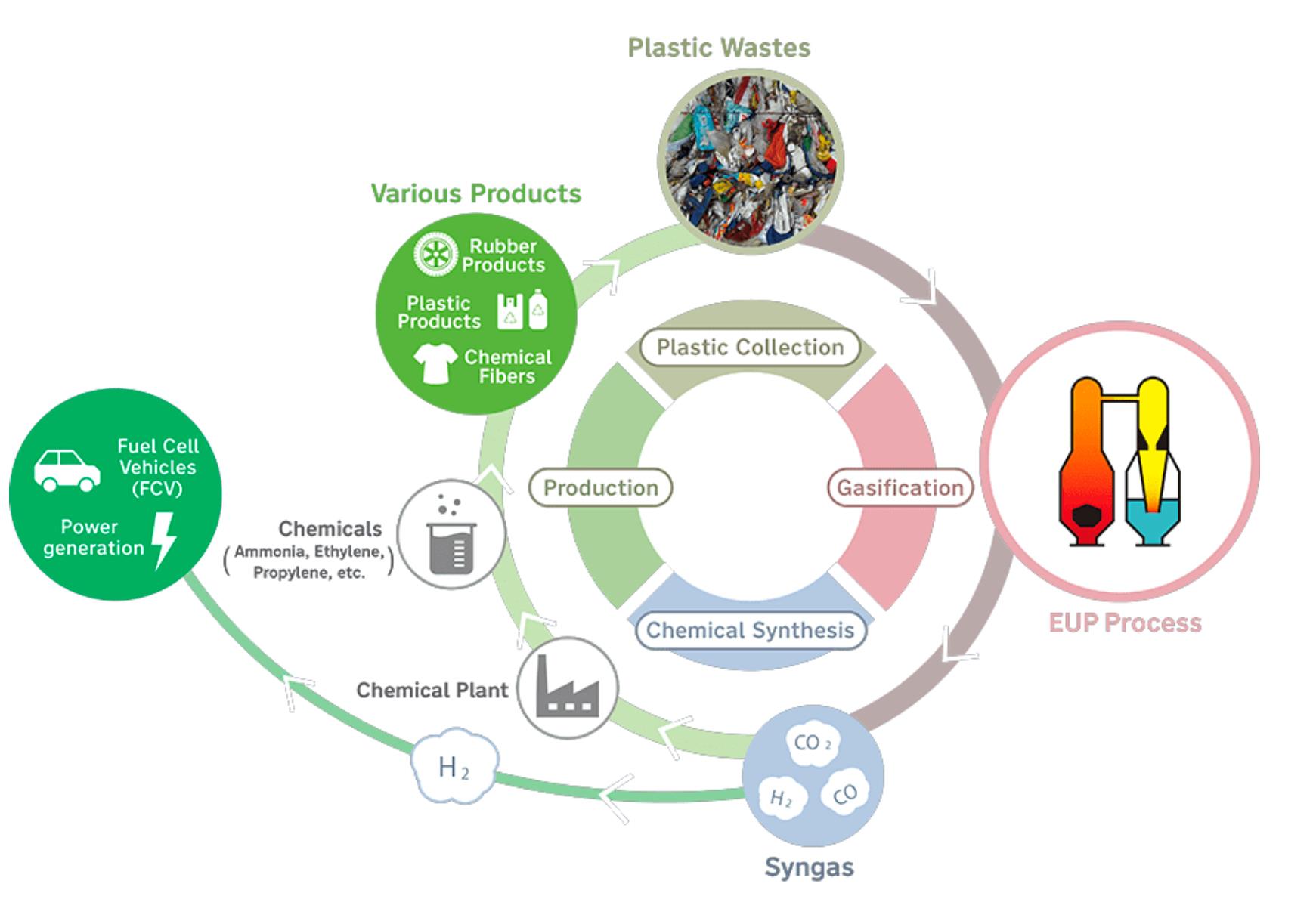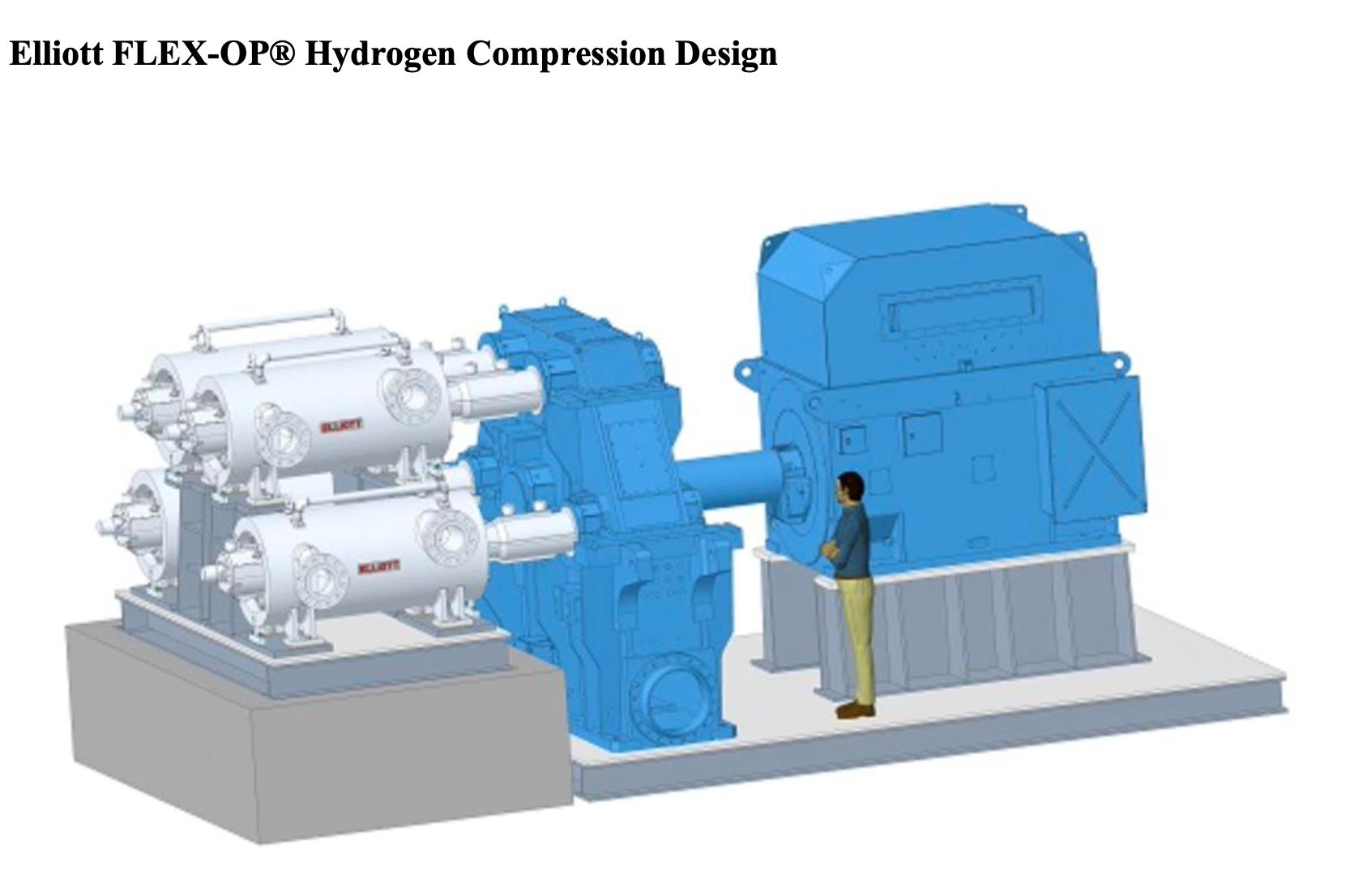
The Future Of 'Turquoise' Hydrogen Is Japanese
TOKYO – Ebara, the Japanese industrial machinery and plant engineering company, is working on technology to produce environmentally friendly turquoise hydrogen. It is also promoting its method of gasifying and recycling plastic waste.
“Turquoise” hydrogen is created using methane pyrolysis, the thermal decomposition of natural gas (mostly methane) into hydrogen and solid carbon that can be sold rather than sequestered.
No carbon dioxide is released during methane pyrolysis itself. Whether or not the entire process is“green” depends on the type of energy used. Ebara hopes to commercialize its process by 2026.
Products derived from solid carbon include carbon black, carbon fiber and carbon nanotubes. Carbon black is used to make pigments, tires and other rubber products.
Carbon fiber is used in aircraft parts, wind turbine blades, golf clubs and many other products. Carbon nanotubes are used in various applications including structural reinforcement, coatings, vehicle and body armor, and electronics.
Ebara is collaborating with Taiyo Koko, a Japanese metals and materials recycling company, Japan's National Institute for Materials Science (NIMS) and Shizuoka University. The project is funded by Japan's New Energy and Industrial Technology Development Organization (NEDO).

Ebara is on the cutting edge of 'turquoise' hydrogen. Image: Screengrab / Ebara
NIMS and NEDO are on the cutting edge of Japan's national industrial policy through collaboration with industry, academia and overseas organizations. Ebara is participating in NEDO's Development of Technologies for Realizing a Hydrogen Society project.
As explained on the latter's website:
“In the field of hydrogen energy, NEDO is promoting technology development, from production to transportation, storage, and the use of hydrogen, including fuel cells, hydrogen refueling stations, hydrogen power generation, largescale hydrogen supply chains, and power-to-gas technology, in order to significantly expand the utilization of hydrogen.”
NEDO aims to“drastically expand the utilization of hydrogen in the power generation field” and“build the world's first full-scale hydrogen supply chain by around 2030,” the website says.
More than 20 years ago, Ebara and Ube Industries, a Japanese chemical company, developed a pressurized gasification technology to recycle plastic waste into chemical feedstock. Known as the Ebara Ube Process (EUP), it has been used since 2003 by Showa Denko, another Japanese chemical company.
Now, with plastic waste becoming a major global environmental issue and the Japanese government having recognized hydrogen and ammonia produced from used plastic as acceptable non-fossil fuels, EUP's time has arguably come.
As noted by JGC, one of Japan's and the world's leading industrial plant engineering companies that licensed the process in 2020,“EUP continues to be the only technology for gasification chemical recycling in the world with a long-term track record of commercial operation.”
Ebara believes that EUP“will help significantly increase the percentage of waste plastics that are recycled. It decomposes waste plastics that are composed of different materials and impurities, which presents difficulties for other recycling methods, and recycles them into a variety of chemicals, such as ammonia, methanol and olefin, enabling them to be reused as raw materials for plastics, rubber, and chemical fibers.”
It can also produce hydrogen for local consumption.

Source: JGC
In December 2021, JGC, energy and industrial gas company Iwatani, and Toyota Tsusho (a trading company affiliated with the Toyota Group) announced that their proposal – entitled“Study toward the development of a regional low carbon hydrogen model based on waste plastic gasification recycling in urban areas” – had been selected by NEDO for its hydrogen-related projects. This followed the passage six months earlier of the Act on Promotion of Resource Circulation for Plastics by the Japanese Diet.
In NEDO's judgment,“The proposed approach would rapidly establish a stable and low-cost supply of low carbon hydrogen using waste plastics discharged from factories, households and other sources.”
“On the basis of the EUP relicensing contract that JGC Group concluded with these three companies, the Group is advancing operations for recycling plastic waste based on the provision of EUP-related technologies from Ebara Environmental Plant and Ube Industries, and the provision of mass production technologies and operational support from Showa Denko,” JGC said in a statement.
Ebara's own hydrogen-related business comprises carbon-free hydrogen production, vessel and pipeline transportation of liquid hydrogen, hydrogen gas and ammonia, technology for large-scale hydrogen power generation, hydrogen refueling stations, rocket engine fuel supply pumps and other applications. It is the next big growth opportunity for its core businesses, pumps, compressors and industrial plant engineering.
Earlier this year, Ebara introduced new compressors for pipeline transmission of low-carbon natural gas including hydrogen blends and a flexible compressor design available in various configurations for hydrogen production, transportation, storage and use.

Image: EBARA
Follow this writer on Twitter: @ScottFo83517667

Legal Disclaimer:
MENAFN provides the
information “as is” without warranty of any kind. We do not accept
any responsibility or liability for the accuracy, content, images,
videos, licenses, completeness, legality, or reliability of the information
contained in this article. If you have any complaints or copyright
issues related to this article, kindly contact the provider above.

















Comments
No comment